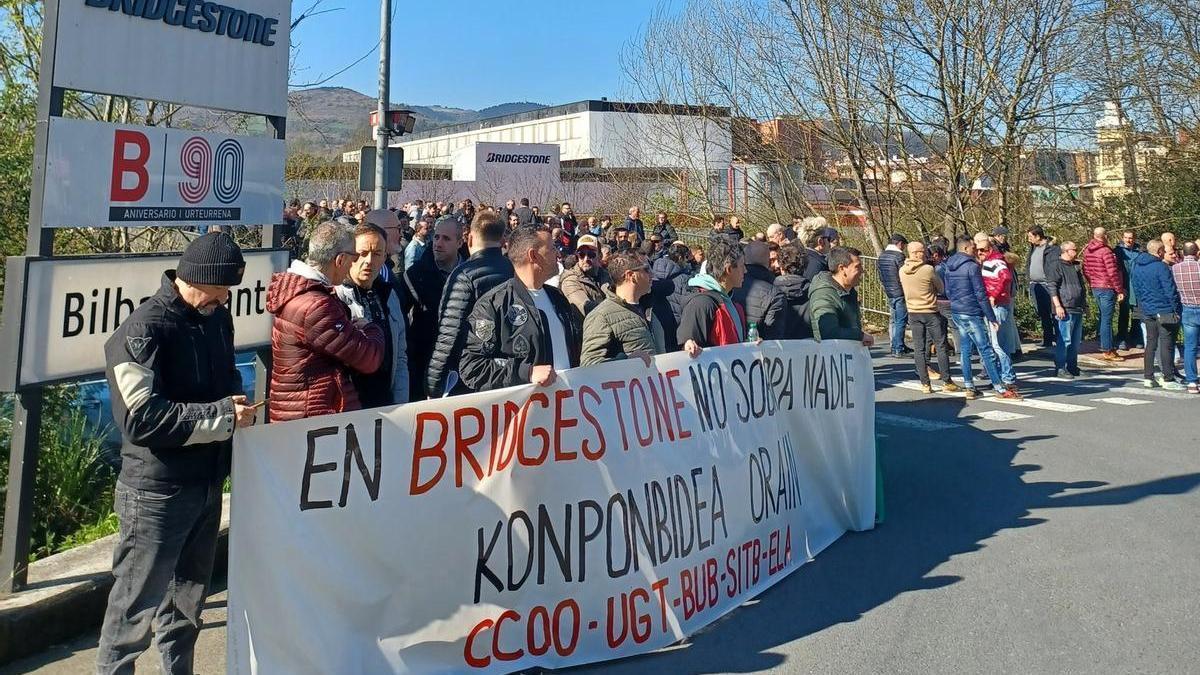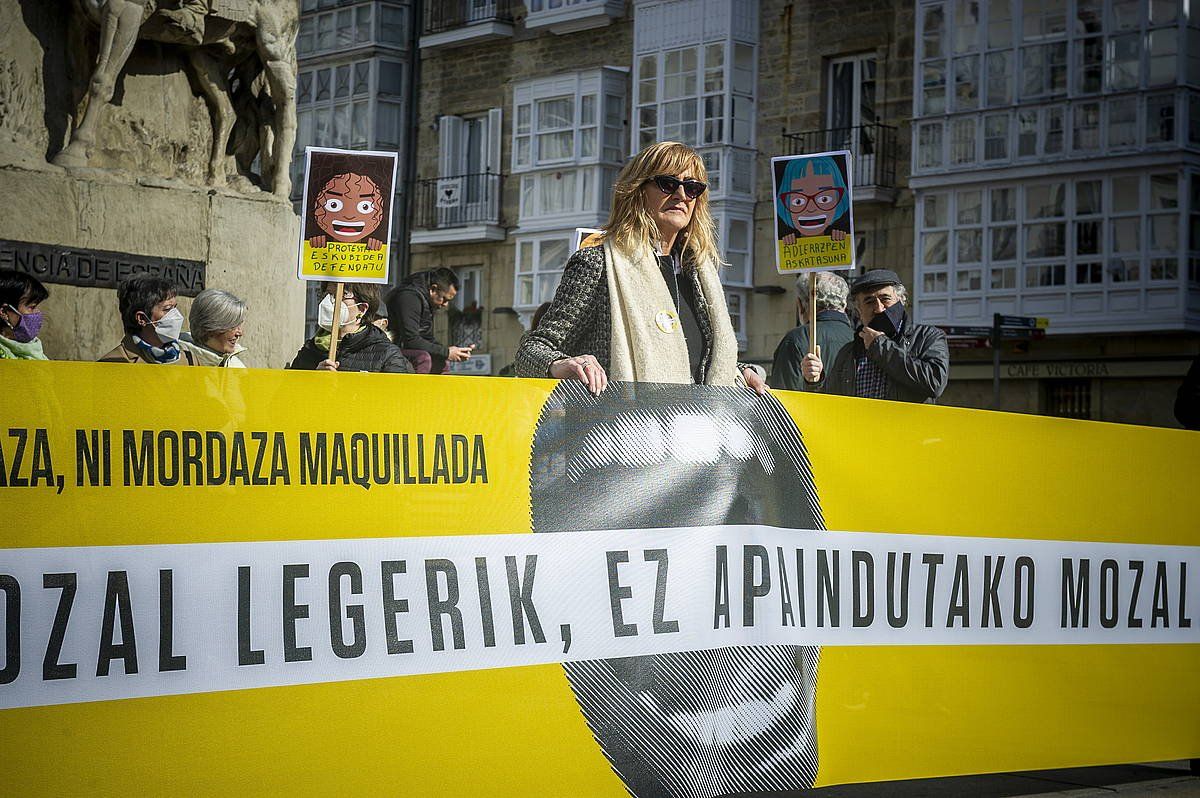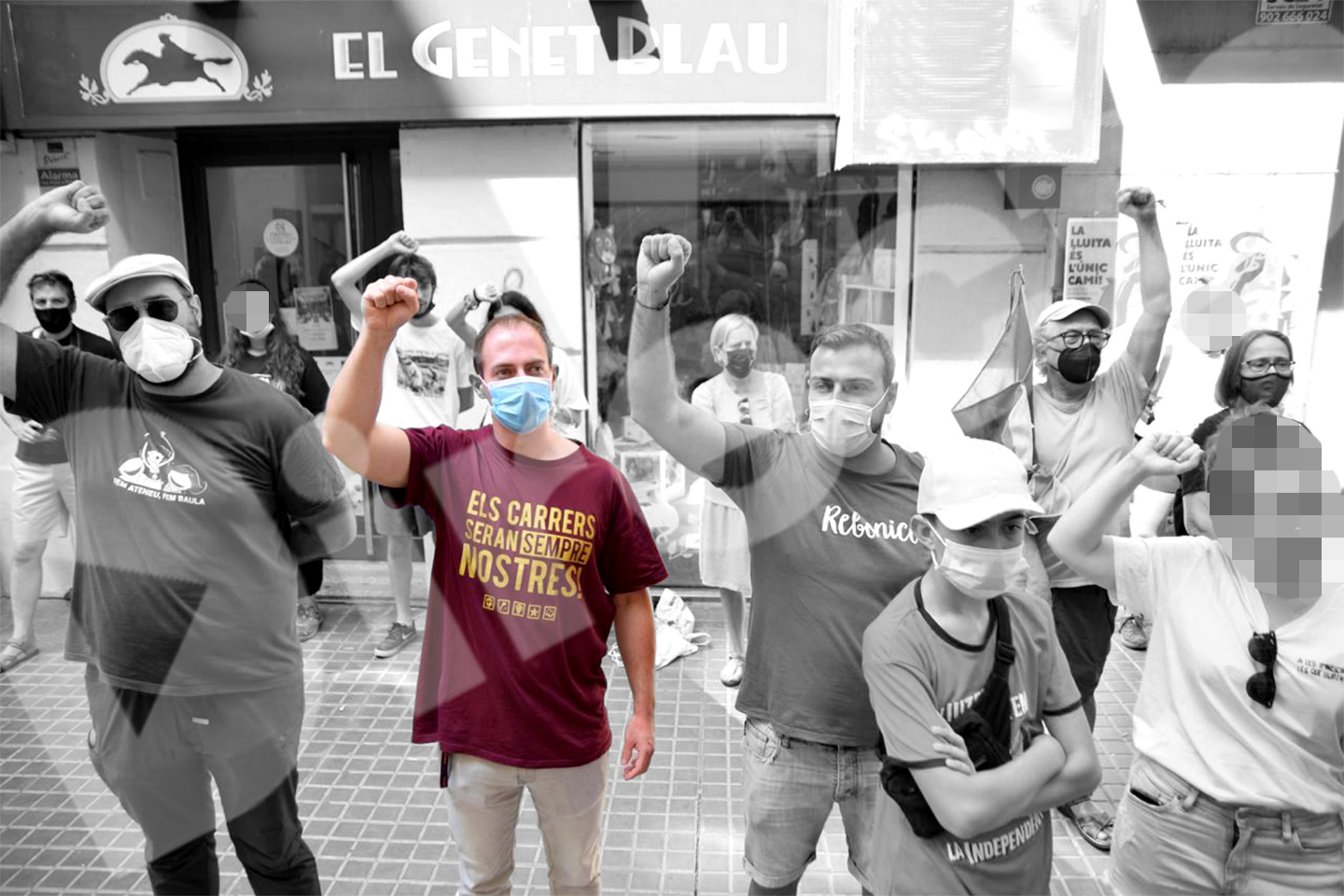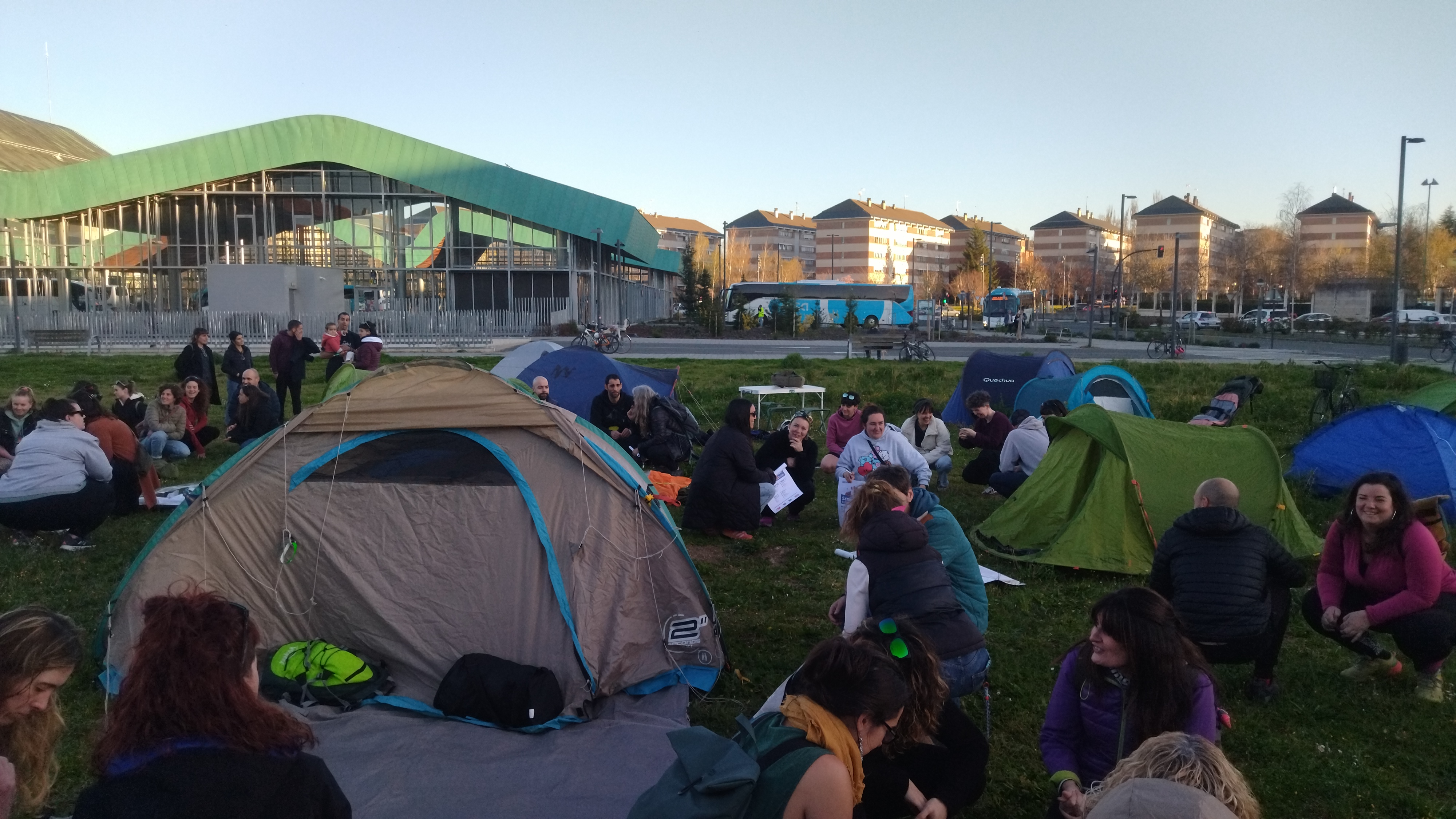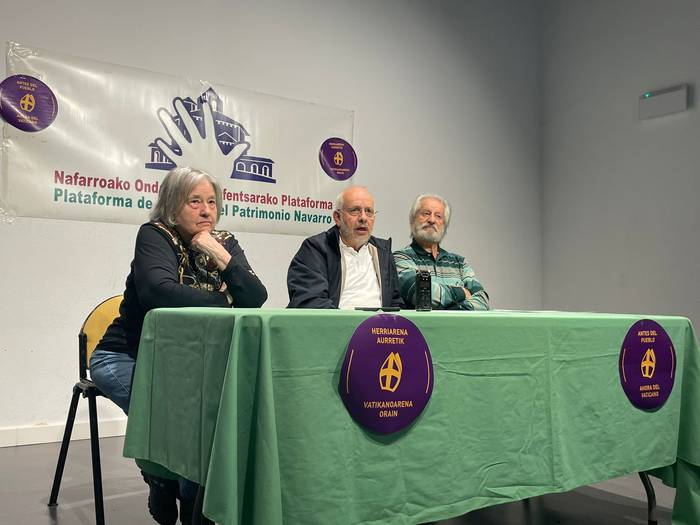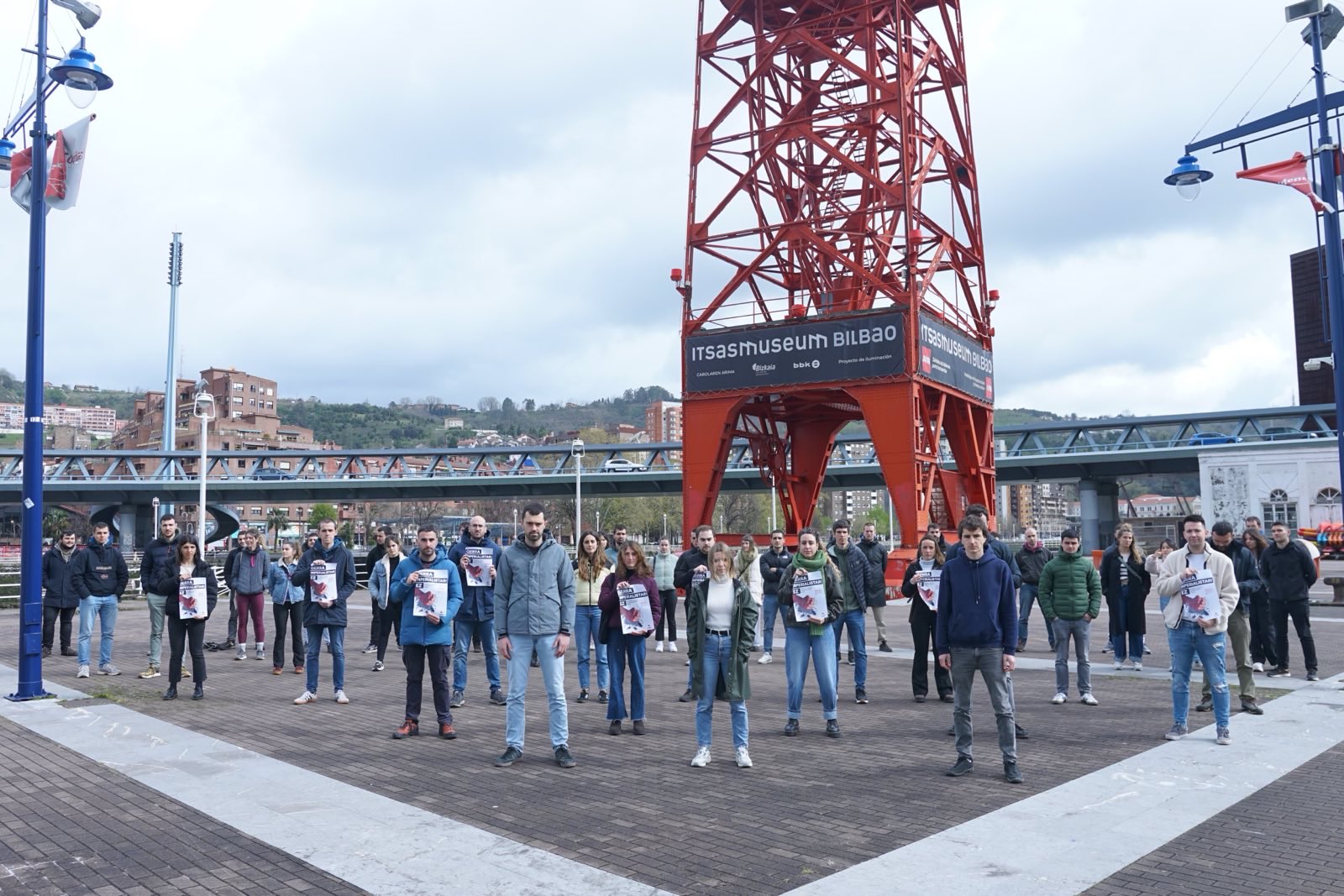Diagnosis: Inequality
- Male violence, which is structural violence, has been socialized as a woman, as well as individuals who incarnate identities beyond the limits of the binary standard of gender, crosses from top to bottom. However, some of the damage caused by this violence is easier to identify than others, and because of many taboos, mental health is often left in the dark.
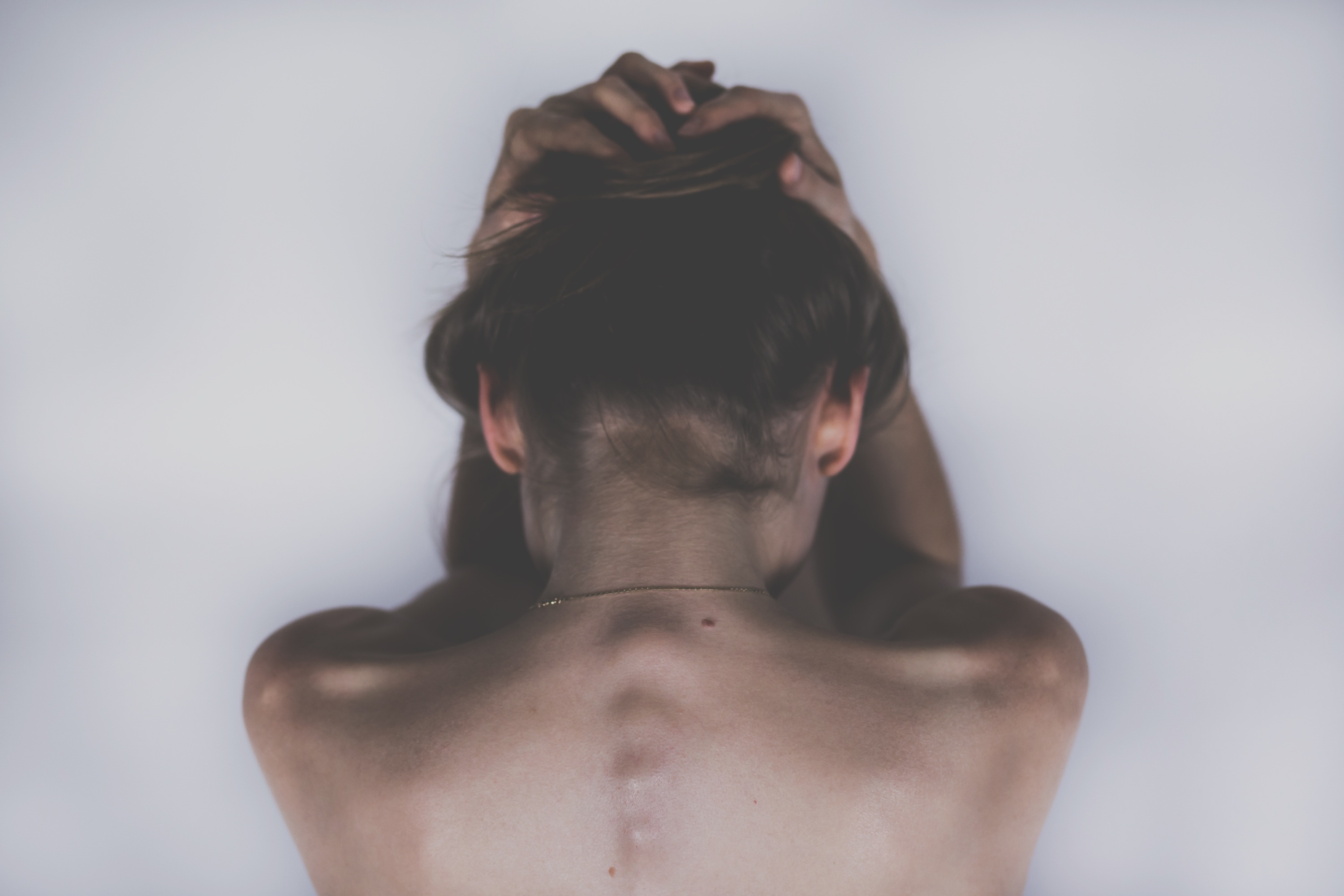
However, the data we can find here and there illuminate these darkness and show the brute reality: The World Health Organization (WHO) emphasizes that among the elderly who suffer the main mental health problems, the majority are women, and that, according to data from the National Health Survey (NHS), one in four women suffer from mental health problems. On the other hand, the 2013 EUSTAT Basque Health Survey reflects that between 2002 and 2013, problems related to mental health, as measured by the prevalence of anxiety and depression symptoms, increased in CAPV by 23% and 16%, respectively, compared to men. In the charts that represent the situation of mental health according to age, social class and level of education, women also predominate.
The World Health Organization (WHO) emphasizes that women are the majority of the elderly who suffer from mental health problems
These data allow us to understand that gender has a decisive influence on mental health. The WHO says that the pressure exerted by different roles, exclusion, male violence, sexual abuse and the combination of factors related to poverty negatively affect women's mental well-being. In this sense, more and more people consider the gender perspective essential to approach the field of mental health.
The Entre Nosotras Health Center in Madrid specialises in the care of psychological problems related to gender. The team of experts working at the center considers that gender-related diseases are a gender crisis and not a disease. Among the causes of these ailments, along with the various forms of violence that society exerts against women, reference is made to gender syncretism, which refers to the double conception of the female gender that currently occurs: “We have a traditional and modern conception of gender, the first invalidates autonomy and the second seeks it. For most women, this contradiction and the difficulties involved in resolving the conflict are the causes of the discomfort,” they explained. In the same vein, Roser Capdevilla and Carmen Sáez spoke in the booklet Mental Health of Women: “Women feel that we are changing, but values and social structures do not help us in that change.”
Capdevilla and Sáez point out that aggressiveness is usually at the base of discomfort with a much higher female prevalence. The truth is that women, although socialized in the female role, tend to have difficulty expressing aggressiveness. That is why, in most cases, they replace the initial feeling with sadness that they find more acceptable. The discomfort, at that time, begins to expel him with physical symptoms.
The body as a sign of discomfort
Headache,
chest, back, joint or muscle, loss of desire and appetite, digestive problems, dizziness, tiredness, excess sleep or insomnia, among others, may be the cause of the substitution of aggressiveness by sadness. Symptoms of depression. In fact, although the management of misguided aggressiveness can cause other problems, the so-called depression is the one that prevails among all ailments. According to data provided by the WHO, disability is the leading cause worldwide and both gender and exposure to violence are risk factors for it. The data do not need an explanation: 80% of the cases of depression worldwide are exogenous (caused by external agents) and 70% of depressions of this type occur in women.
The importance of sociocultural factors in the development of depression makes María Zapata Hidalgo use an anthropological and feminist perspective to investigate the processes of depression to well-being. Although he has psychology studies in fact, he feels that the psychological and medical-psychiatric perspective “in most cases, individualizes the discomfort” and “reduces the importance of the collective and the culture”. Moreover, he considers that the fact that these malestars are considered depressive is “a depoliticization of the discomfort caused by society”. “Social conflict is avoided through pathology,” he says.
Zapata also does not consider depression a disease, but understands it as a moment of crisis in life. A crisis that occurs when the inability to manage several accumulated events, or the lack of management tools, causes the individual to “fall”. It is considered that the personal suffering caused by depression is closely related to the position of disadvantage of the individual in the social and cultural system that surrounds him/her to a large extent. In this sense, he uses the term ‘incarnate social unrest’ when researching. This puts the body (understood as something that is interconnected with emotions) at the center of the observation and allows the observation of the theme from the body ethnography, a vision that considers essential, being the majority of the symptoms generated by depression, body. He recognizes that he has had from the very beginning the hypothesis that the path from depression to well-being should pass through the body.
María Zapata:
“Social conflict is avoided through pathology”
From the data observed, it is concluded that gender, age and income are the main factors of vulnerability to depression. Living conditioned by poverty, being older in the society that honors youth or suffering various violence because of being a woman can lead to depression. What's not to say when the gender factor intersects with another vulnerability factor. With age it is clear: “As for diagnostic depressions, the gender gap is much greater from the age of 65. Why? Because addiction is about gender. It’s hard to be man and old, but it’s much harder to be woman and old,” he explained.
Although it is a highly chronic disease, Zapata considers that the individual who develops depression has the capacity to transform, to turn the disease around. Through this competence, he has closely followed the recovery processes undertaken by several individuals in the research process developed so far, and apparently there are as many recovery processes as depressions. He believes that there are no two cases of depression equal, just as well as well-being and recovery is not the same for everyone. “This needs to be taken into account in order to avoid the obligation to channel any one-way recovery,” he explained. However, on this occasion in which we refer to the weight of gender in discomfort, it is noteworthy that in the recovery one or the other has seen the key to materializing a more flexible gender model.
As mentioned above, Zapata uses the hypothesis that the path to well-being passes through the body. Showering in the mornings, doing physical exercise, make-up… the practices that involve the involvement of the body are considered basic on the road to recovery. However, he believes that there are other aspects that are also of vital importance, including contact networks. “I think it’s essential to have a network, I can’t even imagine the recovery of a person who is alone,” he explained. “Crises force us to make changes, to carry out identity transformations,” but “understanding identity as something relational,” he says, convinced that the strength of recovery is to accept the vulnerability and dependence of others.
Member notebook

The
experience of Maite Mutuberria, illustrator, leads us to take into consideration the hypothesis of Zapata, where he found the handle in the drawing while a dark streak was taking place. “The notebooks are part of me, as another part of my body,” he says in his case, suggesting that the path to well-being passed through the body. His concern was drawing on the pages of notebooks and he recently published the drawings in album book format. He says it is the notebook of a crisis, as Mutuberria also considers the lived as a period of crisis. The word depression is not representative of what was experienced and is considered a limiting term, so it is she who has named this discomfort: Lohia, which is also the title of the album he has just published.
“The crisis has been like a digging process, towards my interior,” he explained. In this process he has seen that “everyone has their own dirt,” “although we sometimes keep it there, wanting to show the world that we are clean.” In reference to that soiling, he has given the name he has given to the work. If from this excavation he has drawn lessons it is that we all carry mud inside and “we have to know how to manage that, not clean it”. He attributes the crisis to the lack of tools to manage that dirt, in line with Zapata as well.
The crisis served Mutuberria to get to know himself, as a drawing of the album allows him to understand it perfectly. In it one can read the “autopsy for self-knowledge”, as the only exit for the author was “to enter” and “to see from within”. He says he tried to find the path of well-being in different ways, but he found the key on that journey indoors. “That’s what I imagine in the book, how I enter my bowels to see myself from within,” he says.
Maite Mutuberria:
“Everyone has their own dirt (...) although sometimes we keep it there, wanting to show the world that we are clean”
It is the rubble of the mud, according to the author, that is reflected in the book. When asking what these residues formed, it took some time to reflect before answering: “I created a fictional self, and that’s what fell. Since we're born, we've been creating an identity, we've created our own identity, and there can be a point where you don't know if you really are that or you're something that society has created. So, what fell was the I that I had created, and now I am trying to create my true I with the waste.”
Lohia can be considered as a work of great potential. Both because breaking the taboo of insanity built around psychological suffering, it raises a theme that takes place in isolation and in private, as well as because it offers a closer or intimate view of depression. “The problem is society, but one lives on an individual basis on a daily basis. Perhaps it is better understood by this everyday life and because I do it from within”, explains the author. Just like you've let him know who or who, work helps to identify the cases of depression that we have in the nearby environment, and that's not an easy achievement. “It has not been easy for me to socialize this work. That’s why, if someone helps, for me it’s a joy, the biggest flower they can throw at me,” he acknowledged. By the way, if a woman who has lived or suffered similar experiences can begin to break the silence. “I think it’s nice that women use this book as an excuse to start talking about these things.”
Japoniako multinazionalak egin nahi duen erregulazio txostenak plantako langileen herenari baino gehiagori eragingo die. Enpresa batzordeko kide Luis Escalonak adierazi du "langileen aurkako eraso bat" dela, eta lanuzteak egingo dituztela iragarri du.
Duela hamar urteko martxoaren 31an Espainiako Estatuko Aldizkari Ofizialean argitaratu zuten denok Mozal Legea gisa ezagutzen dugun araudia. Espainiako Estatuan ez ezik, nazioartean parekorik gabeko aurkakotasuna eragin zuen lege makurra. Hamarkada pasa da eta jaio zenean bezain... [+]
Ez atera zalapartarik, ez konfrontatu, ez biktimizatu... eta obeditu. Subjektu zapaldu gisa, kasu honetan euskaldun gisa, mintzo gara, zenbatetan entzun behar izan ditugu halakoak? Ironiaz, honelaxe esan zuen, duela bi urte, Euskaltzale Independentiston Topaketan, Amets... [+]
Directa hedabideak ikertu eta argitaratu du poliziaren infiltrazioa. 2019ko irailean hurbildu zen lehen aldiz Lleidako Ateneu Cooperatiu taldera, Joan Llobet García izenpean, eta 2021eko azaroan utzi zuen militantzia, Bartzelonan lana aurkitu zuela eta amonaren... [+]
350 poliziako "Force Frontière" dispositiboa baliatu dute Gipuzkoako eta Lapurdiko mugetan migratzaileen kontra egiteko martxoaren 26 eta 27an. Aurrez "terrorismo islamistaren" aurka egiteko aitzakiaz erabiltzen zituzten dispositiboak, orain "migrazio... [+]
ARGIAri jakinarazi diotenez, 40-50 irakasle inguruk Eusko Jaurlaritzaren Lakuako egoitzaren pareko belardian igaro dute gaua. Dozena bat kide identifikatu ditu gauerdian Udaltzaingoak.
Gaurko greba deialdiak %75eko jarraipena izan du sindikatu deitzaileen arabera... [+]
'Espetxeak libre' manifestuan adierazi dute Eusko Jaurlaritzak "ataka txarrean" jarri dituela kulturgileak, espetxeetara kultur emanaldiak egitera sartu nahi dutenei dokumentu bat sinatzea eskatzen baitie, eta salatu dute ezin dutela sartu ez sinatuz gero. Kultur... [+]
Kriztian Borda hautetsi ohia eta Lurzaindia elkarteko kideak sare sozialetan zabaldu duen bideo baten harira piztu da ika-mika. Arbonan laborantza lurrak "arriskuan" daudela salatu du Bordak, eta jakinarazi du Arbonako Herriko Etxeak bere kirol zelaia Baionako promotore... [+]
Triskantzaren balantze humano eta ekonomiko ilunaren esperoan, galdera berehala bururatzen zaigu urrutiko begirale baino asko gehiago ezin izan garenoi: zer gertatuko da orain gerra zibil horretan? Nolako eragina izango du lurrikararen suntsiketak? “Nargis efektu”... [+]
Iruñeko artzapezpiku Florencio Rosello eta Tuterako gotzain Joseba Segura Nafarroako Elizak immatrikulatutako ondasunak itzultzeko prest azaldu dira epaitegiek hala aginduz gero, baina inmatrikulazioak legezkoak izan direla defendatu dute.
Bai ikastetxeek antolaturiko eskolaz kanpoko jarduerek, bai aisialdiari loturiko ekintzek eta udalekuek desgaitasunen bat duten haurrak kanpoan uzten dituzte maiz, eta hain justu, jarduera horiek bereziki onuragarriak dira premia bereziak dituzten haurrentzat. Hala dio... [+]
Antidepresiboen kontsumoa aztertuta, Euskal Autonomia Erkidegoan COVID-19aren pandemiak sintoma depresiboen intzidentzia handitu zuela ondorioztatu du ikerketa batek. Halaber, azterlanak nabarmendu du herritarren osasun mentala arazo fisikoekin batera artatzearen garrantzia, bai... [+]
Aitzindariak elkartea Aitzina Biga ikuskizuna prestatzen ari da. Ehun parte-hartzailetik gora izango dira dantzan, musikan, antzerkian, kantuan eta bertsotan apirilaren 19an Maulen aurkeztuko den ikuskizunean. Uztaila bitarte, beste lau emanaldi izango dira: Miarritze, Arrasate,... [+]
"Gerra inperialistaren eta Europako estatuen berrarmatzearen aurka" mobilizatuko da Langileon Nazioarteko Egunean.











